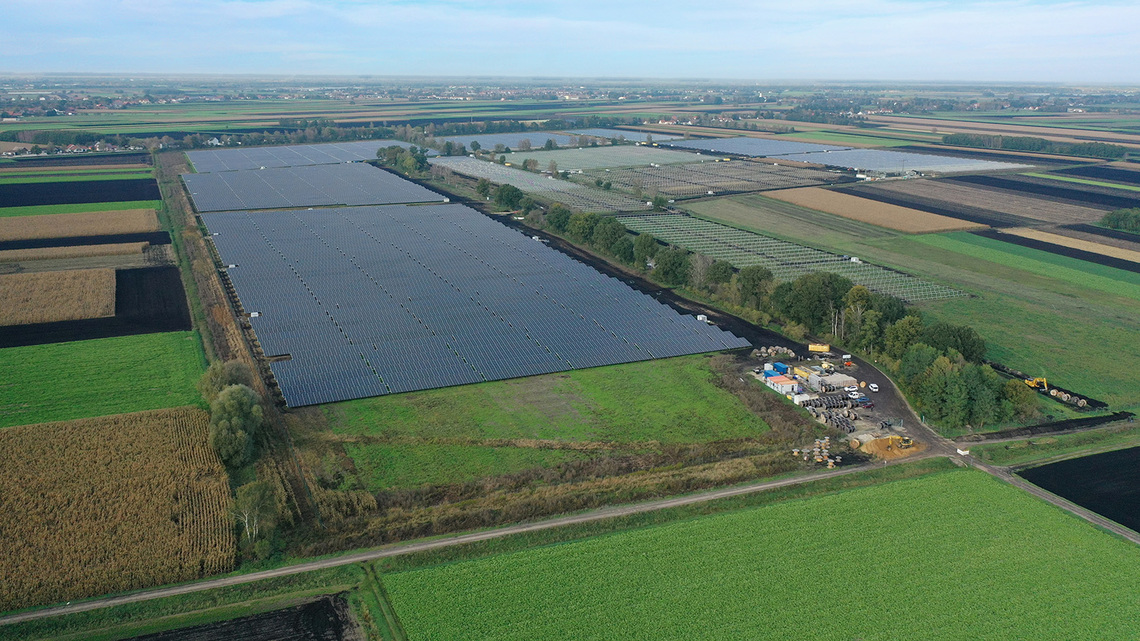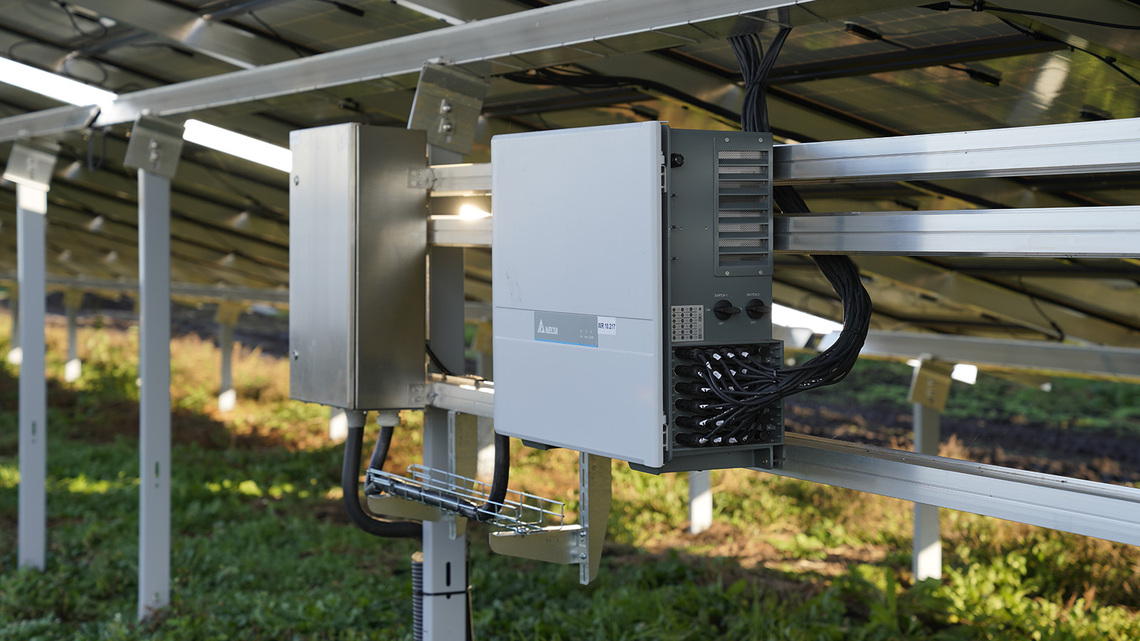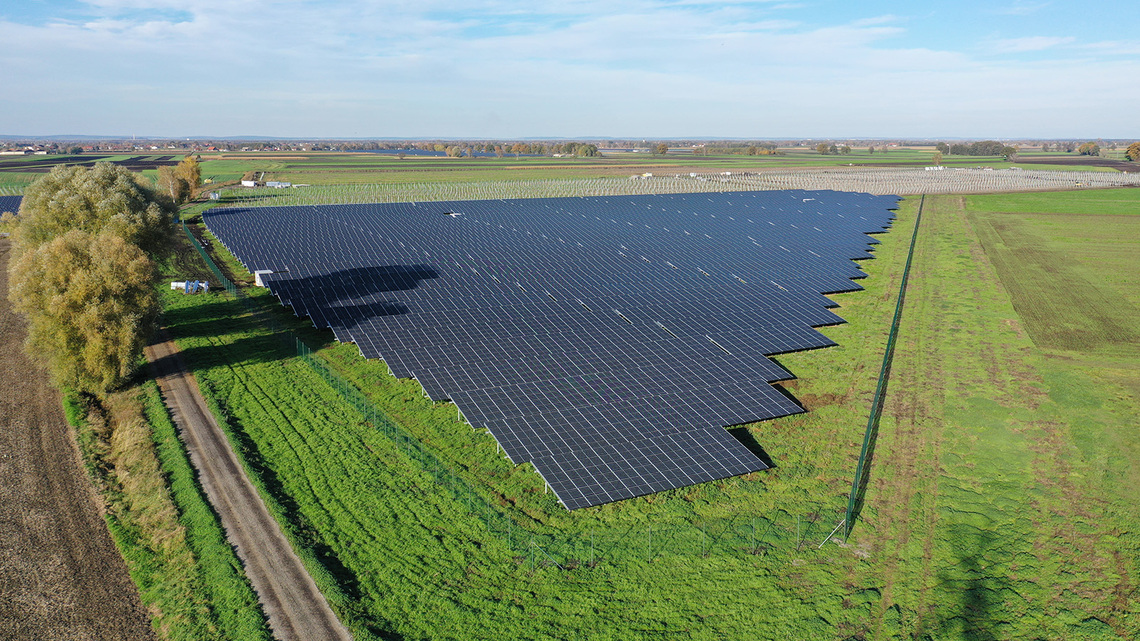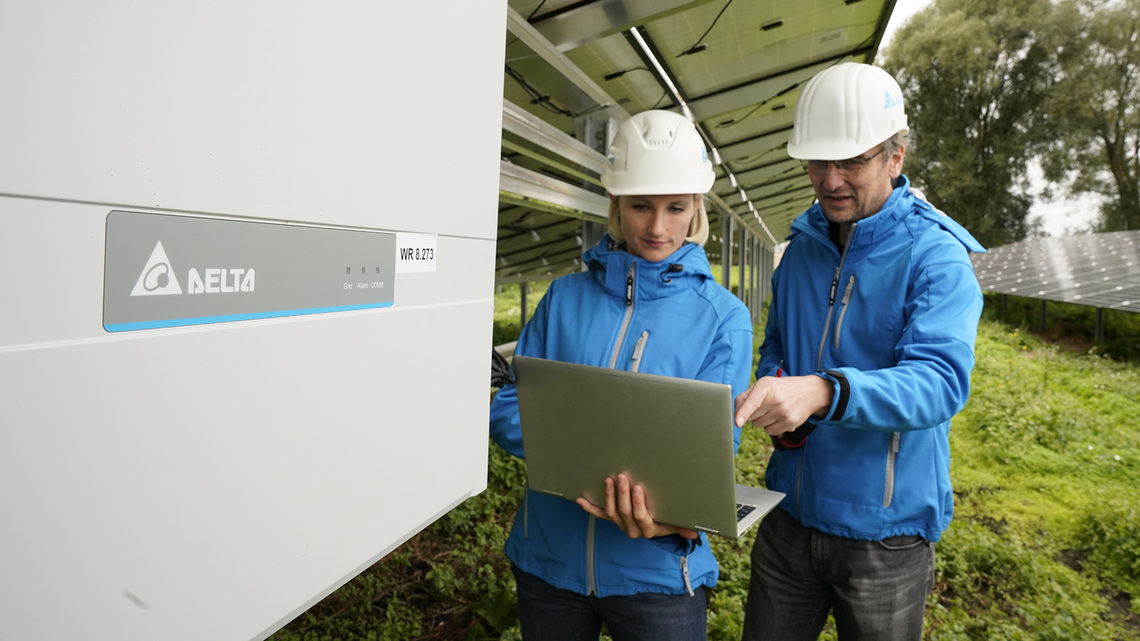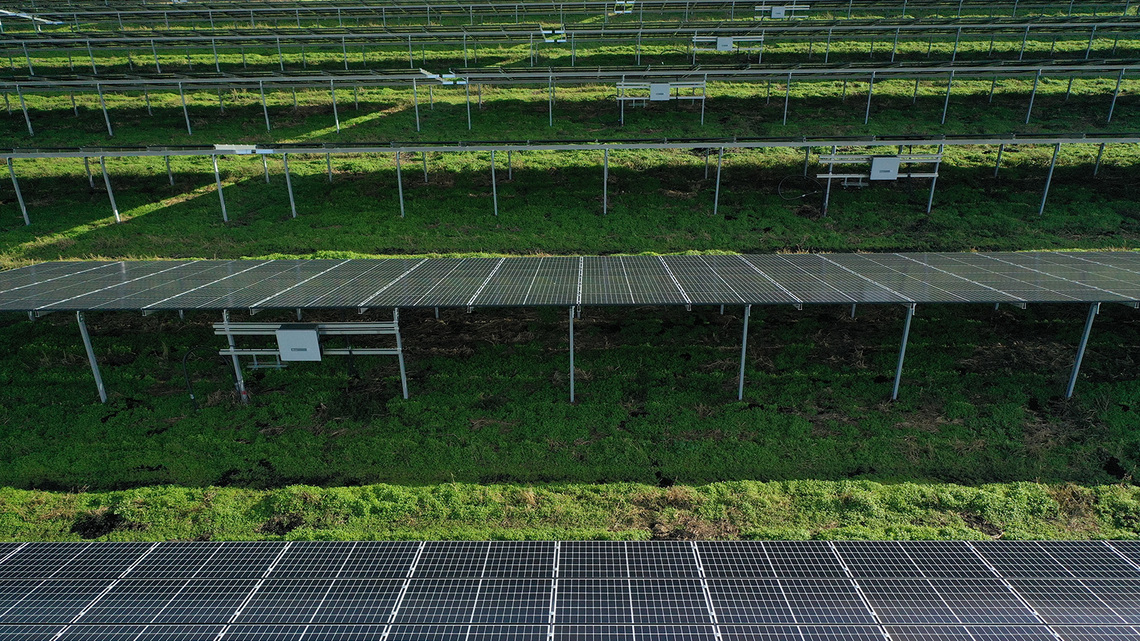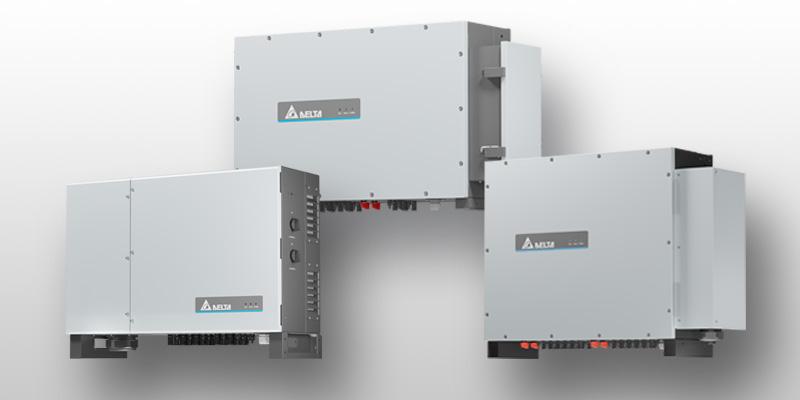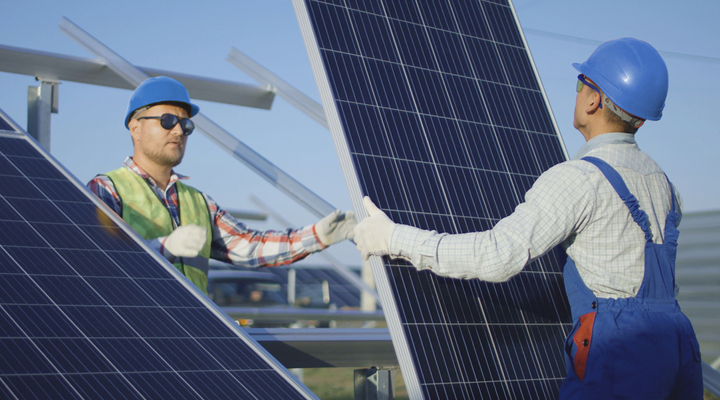Berg im Gau, Germany
Delta supplies inverters for Southern Germany’s largest ground-based photovoltaic plant
The 150 hectare site in Berg im Gau, Bavaria, will supply electricity to around 100,000 local residents
Anumar, the EPC (Engineering, Procurement and Construction) services provider from Ingolstadt, is building and operating what is currently the largest solar park in Southern Germany, with output of 120 MWp. The Solarpark Schornhof project, located in the Neuburg-Schrobenhausen district to the west of Ingolstadt is scheduled for completion by the end of the first quarter of 2021 and will cut CO2 emissions by up to 77,000 tonnes per year. Currently, 70 megawatts are already connected to the grid. Anumar has chosen Delta as its inverter supplier.
Alternative use for agricultural land
The plot selected to house Solarpark Schornhof is located in what was once the largest area of fenland in Southern Germany. For many years, the fertile soils of the former Donaumoos fen were intensively farmed. However, the humus depth and moss content of the drained land shrinks by one to two centimetres every year, releasing greenhouse gases when the organic layer below comes into contact with the air. Landowner Alexander von Zwehl was looking for other ways to make his land productive, and decided to lease out the 150-hectare plot surrounding the former Schornhof farm for use as a solar power installation. The high level of local support, high feed-in prices in Bavaria, the size of the surrounding area and its proximity to the high-voltage line between Munich and Ingolstadt made his land the perfect site for a photovoltaic plant. It means that von Zwehl can still make money from his property, but the new method of exploitation stops soil erosion and contributes to the energy revolution.
A strong partner for a successful project
Anumar, which has been planning, building and operating solar power installations since 2010, is responsible for the project. Work to insert aluminium posts into the soil at the site in Berg im Gau, which is equivalent in size to around 200 football pitches, started in March 2020. In total, 70,000 posts will be installed, as well as a framework of vertical and horizontal beams to support the 350,000 photovoltaic modules. Anumar chose Delta to fulfil the site’s requirement for circa 1,500 inverters. “At such a large project like Solarpark Schornhof it was particularly important for us to have a trusted partner who is available around the clock. We have been installing equipment made by Delta for many years and already have several solar power projects under our belts in partnership with them. Delta has always impressed us during these projects with fast and easy to access support,” explained Markus Brosch, CEO of Anumar. “An additional benefit is that Delta’s M70A String Inverter complies with the new VDE Technical Connection Rules for High-Voltage (VDE-AR-N 4120), which is a basic prerequisite for connecting the plant to the high voltage grid,” Brosch added.
At Solarpark Schornhof, sets of twelve cable bundles with up to 70 KW of power are combined in one inverter. This converts the DC output from the solar modules into 400 V AC, which is combined with the output from 20 more inverters and fed into one of over 60 transformer stations. There, the electricity is transformed to 20 kV, before a substation increases the voltage up to 110 kV for feeding into the grid.
“The power electronics converts the direct current from the solar power modules into alternating current, which can be used in our power grid. Thanks to its compact design, our M70A inverter is easy to transport and install, and is particularly well suited to use in large open-area commercial solar power plants such as the one we have here in Schornhof, as it features a high power density,” said Andreas Hoischen, Senior Director of the Business Unit Photovoltaic Inverters Delta EMEA at Delta Electronics.
Marion Futterer, Business Development Manager Photovoltaic Inverters Delta EMEA, added, “We are especially pleased that Anumar has once again shown its confidence in Delta’s capabilities and selected us to supply the inverters for the Schornhof project. We are looking after the project from construction through to completion, as befits our reputation for long-standing, personal and loyal partnership.”
Power purchase agreements and support under the German Renewable Energy Sources Act make the economic case
With peak output of 120 MW, the solar plant is designed to generate 110 GWh of electricity every year. The generated power is introduced to the 110 kV line between Schrobenhausen-Steingriff and Ingolstadt-Kothau via a dedicated substation. Some 30,000 homes will be supplied with electricity from Solarpark Schornhof, equivalent to the entire Neuburg-Schrobenhausen rural district. As project operator, Ingolstadt-based Anumar is footing the 60 million euro investment itself. It has created an operating company head-quartered in Berg im Gau, and has a lease allowing it to use the land until 2053, at which point the installation is slated to be dismantled. However, the landowner Alexander von Zwehl believes that the land will continue to be used to generate electricity using the power of the sun, potentially with new photovoltaic modules, long after that date.
The project is being financed based on power purchase agreements (PPA) and funding under the German Renewable Energy Sources Act (EEG). “PPAs are absolutely crucial to the energy revolution. They allow us to sell solar power projects directly, rather than relying entirely on EEG funding,” explained Andreas Klier, CEO of Anumar. “Photovoltaic modules are currently the cheapest way of generating electricity. Here in Schornhof, generating costs are below 5 cents per kilowatt hour,” continued Klier. The Norwegian state power company Statkraft is the PPA partner for a total of 90 MW to be produced at Schornhof. It will buy the electricity at a fixed price for a period of 10 and 11 years. Anumar will finance the remaining 30 MW of power through payments from EEG tenders.
A power plant combined with a green oasis
In ecological terms too, the Schornhof project brings many benefits. Only half of the 150-hectare site will be covered with solar modules. The remaining 70 hectares will be transformed into a “green paradise” by the operator. This part of the project entails planting some 50,000 new shrubs and trees, with the existing perimeter woods being retained. These do not interfere with the installation since they are far enough away from the photovoltaic modules. In between the modules there is plenty of space for meadows and wild flowers to grow, providing a home to small animals, bees and other insects. Anumar is also planning to collaborate with local bee-keepers and is open to extensive use of the meadow, such as for grazing of sheep.
“At Delta we are proud to be working with Anumar on this project, and to be supplying a core technology for the energy revolution with our power electronics. Our employees, numbering more than 500 in Germany alone, make a contribution every day to developing smart, eco-friendly energy solutions,” said Andreas Hoischen.
